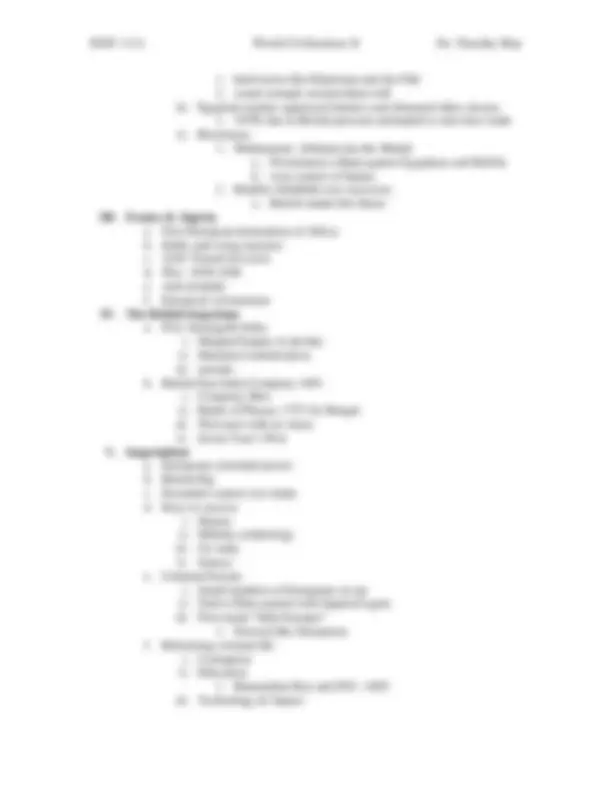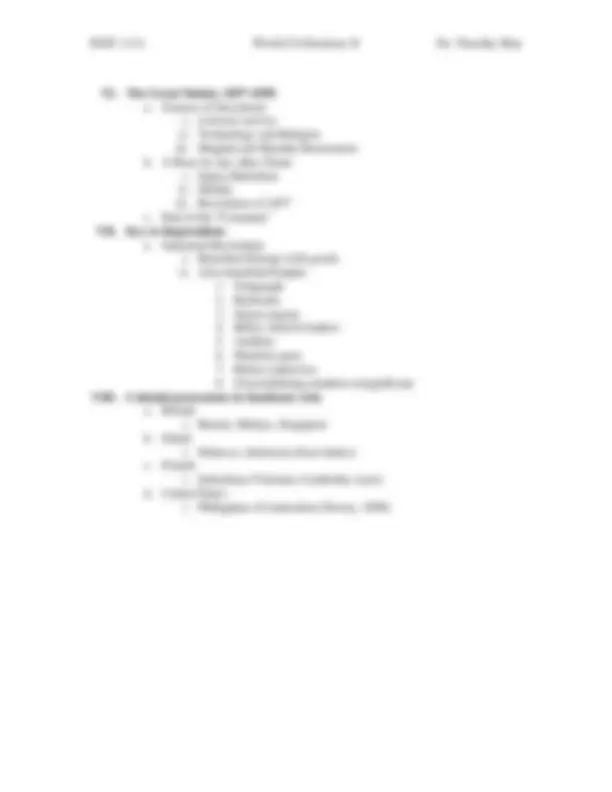




Study with the several resources on Docsity

Earn points by helping other students or get them with a premium plan


Prepare for your exams
Study with the several resources on Docsity

Earn points to download
Earn points by helping other students or get them with a premium plan
Community
Ask the community for help and clear up your study doubts
Discover the best universities in your country according to Docsity users
Free resources
Download our free guides on studying techniques, anxiety management strategies, and thesis advice from Docsity tutors
An overview of the historical developments in southern africa and the middle east between 1750 and 1870. Topics include the occupation of southern africa by bantu peoples, the establishment of dutch and british colonies, the rise of the zulu empire, and the western intrusion into the middle east. The document also covers the impact of european powers on egypt and the response from muslim communities.
Typology: Study notes
1 / 4

This page cannot be seen from the preview
Don't miss anything!



Dr. Timothy May
I. Southern Africa a. 16th century Bantu peoples occupied eastern part of Southern Africa i. practiced agriculture and herding ii. traded with neighboring areas iii. chiefdoms of various size
iii. British intervened to save the ruler. iv. British consuls directed Egyptian government there after
VI. The Great Mutiny 1857- a. Sources of discontent i. overseas service ii. Technology and Religion iii. Mughal and Maratha Restoration b. A Rose by any other Name i. Sepoy Rebellion ii. Mutiny iii. Revolution of 1857 c. End of the “Company” VII. Key to Imperialism a. Industrial Revolution i. Benefited Europe with goods ii. Also benefited Empire